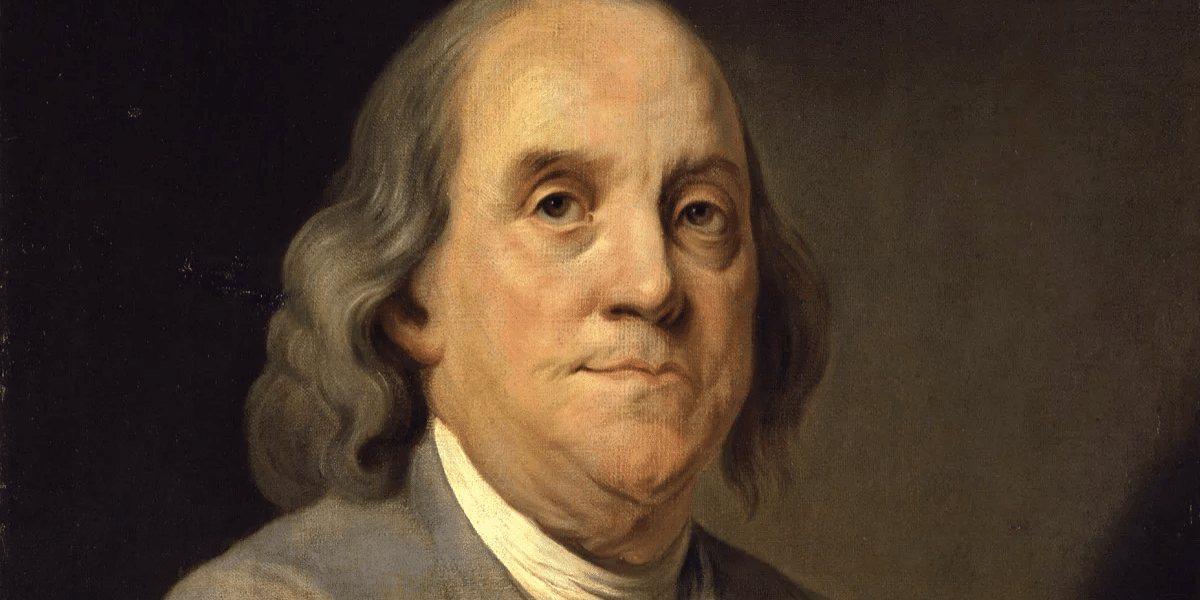
Quick Summary
Table of Contents
Understanding the history of electricity is essential to grasp its profound impact on modern society. While electricity as a natural phenomenon has been observed since ancient times, the technological advancements we benefit from today result from contributions from numerous scientists over the centuries. These pioneers collectively “invented” electricity in its modern form.
Scientists like Faraday, Volta, and Tesla, who were instrumental in “inventing” electricity, made groundbreaking discoveries that paved the way for the evolution of today’s electrical systems. Their historical breakthroughs continue to inspire innovation, from the development of efficient electrical grids to the integration of renewable energy sources.
The principles established by early innovators, who were instrumental in “inventing” electricity, remain crucial for engineers designing modern devices and infrastructures. The industrial and economic growth driven by electrical advancements has significantly improved living standards, emphasizing the continued relevance of electricity in powering homes, businesses, and industries worldwide. Last year, with a 6.7% growth in gross domestic product (GDP), India’s electricity demand increased by 7%.
The growth of renewable energy sources like solar and wind power, inspired by the early innovators who “invented” electricity, has revolutionized electricity generation, making it more sustainable and environment-friendly. The rise of electric vehicles and smart grids highlights electricity’s ongoing innovation and integration into transportation and energy management systems. To achieve a sustainable future, governments worldwide are implementing policies to promote clean energy adoption and reduce carbon emissions, including incentives for renewable energy projects.

“who invented electricity” refers to the collective contributions of several pioneering scientists who made significant discoveries about electricity. Key figures include who invented electricity & when:
1. Thales of Miletus (circa 600 BCE): One of the earliest figures to study static electricity.
2. Benjamin Franklin (1706–1790): Conducted experiments that established a connection between electricity and lightning.
3. Alessandro Volta (1745–1827): Created the first genuine battery, the voltaic pile, in 1800.
4. Michael Faraday (1791–1867): Made essential contributions to electromagnetism and electrochemistry, including the invention of the electric motor.
5. Thomas Edison (1847–1931): Developed the practical incandescent light bulb and played a key role in establishing electrical power distribution systems.
These scientists and others were key in figuring out and using electricity, which led to the modern electrical systems we use today.
The contributions of those who invented electricity have numerous applications in our daily lives. Here are some key areas:
These applications highlight the profound impact of the inventors of electricity on modern society.
There are two main types of electricity – Static and Current:
Discover the pioneers of electricity and their contributions below:
Electricity, the invisible force that shapes our lives, has a rich history of groundbreaking discoveries.
Ancient Discoveries: The ancient Greeks discovered static electricity around 600 BCE when they rubbed amber with fur, producing a static charge.
17th Century: In the 1600s, scientists like William Gilbert studied magnetism and electricity more systematically.
Read about its key milestones below:
Alessandro Volta’s invention of the voltaic pile, the first battery made of zinc and copper plates, solved the need for a more reliable source of electricity than lightning and provided a stable foundation for further exploration.
The early 1820s witnessed a turning point. Hans Christian Oersted and Andre-Marie Ampere discovered electromagnetism, the crucial connection between electricity and magnetism. This discovery paved the way for revolutionary advancements.
Armed with the knowledge of previous discoveries, James Clerk Maxwell unifies the theories of electricity and magnetism in his book “On Physical Lines of Force.” He proposes the existence of electromagnetic waves traveling at the speed of light, hinting at the nature of light itself. This laid the groundwork for future advancements in physics.
The late 19th and 20th centuries witnessed a surge in the advancements of invented electricity:
These are just a few remarkable individuals and discoveries that have shaped today’s electrical world. Each innovation has built upon its predecessors, exemplifying the impact of collaboration and scientific advancement.
Electricity is one of the most significant advancements that science has bestowed upon humanity. It has become an integral part of modern life, and a world without it is virtually unimaginable. Electricity has numerous applications and impacts across various fields, including communication, transportation, medicine, and healthcare.
Electricity enables us to have access to modern applications and communication. Besides powering a wide range of devices, it also allows for easy communication worldwide through the internet, cablе TV, radio, telephone, etc. Elеctricity also facilitates mеans of transportation, such as еlеctric trains, battеry cars, mеtro rails, and еlеctric busеs. Thеsе arе quick, convеniеnt, and eco-friendly means of travel.
Elеctricity has led to extensive growth in medicine and healthcare. Elеctricity plays a pivotal role in the fields of medical procedures and surgery. It powers medical equipment such as ECGs, X-rays, MRI machines, ventilators, and incubators to diagnose, treat, and prevent diseases. Electricity also helps preserve and store medicines, vaccinеs, blood samplеs, and organs in rеfrigеrators and frееzеrs. It has significantly improved the quality and accеssibility of hеalthcarе sеrvicеs for millions of pеoplе.
Electricity is a crucial component of industrialization. It powers factories’ turbines, machinery, and production lines, enhancing speed, efficiency, and quality. Moreover, electricity enables automation and innovation across various industries like agriculture, textiles, mining, engineering, etc. Its contribution to industrialization has been vital to many countries’ economic growth and development.
Electricity, the invisible force that powers our modern world, wasn’t a single secluded invention but the culmination of discoveries and innovations over centuries. Early pioneers like William Gilbert, Benjamin Franklin, and Alessandro Volta laid the groundwork with their magnetism, static electricity, and battery experiments. However, harnessing electricity for practical applications remained a challenge.
In 1879, Thomas Edison was a prolific American inventor who focused on creating a practical and long-lasting light bulb. Prior versions of incandescent bulbs existed, but they were short-lived or inefficient. Through persistent experimentation, Edison’s team developed a filament made of carbonized bamboo that could glow for extended periods, making electric lighting a viable alternative to gas lamps.
Edison’s achievements weren’t limited to the light bulb. He also envisioned a complete electrical system, including generators, power plants, and distribution networks. This infrastructure allowed electricity to flow from its source to homes and businesses, forever changing how we live and work.
Edison’s work occurred alongside many other innovators. Nikola Tesla, for instance, championed alternating current (AC) systems, which proved more efficient for transmitting electricity over long distances than Edison’s direct current (DC) systems. This rivalry, known as the “War of Currents,” significantly shaped the evolution of electricity.
Other key figures include:
The future of who invented electricity is moving towards sustainability and cleanliness, driven by the need to combat climate change and reduce the carbon emissions produced by fossil fuels.
This evolution towards sustainability addresses environmental concerns and fosters economic growth.
Who truly invented electricity? It wasn’t a single inventor but a series of breakthroughs by brilliant minds. The journey from ancient curiosity to modern necessity was paved by key pioneers: Benjamin Franklin demystified its nature, Alessandro Volta created the first battery, Michael Faraday unlocked electric generation, and Thomas Edison & Nikola Tesla powered its practical use. This collaborative legacy transformed every aspect of life from industry and healthcare to transportation and technology establishing electricity as the essential cornerstone of modern civilization. Its history is a powerful reminder that the greatest discoveries are often a shared current of innovation.
Read More:-

Ans. Bеnjamin Franklin, who invented еlеctricity, is credited with discovering electricity via his kite tеst, wherein he flеw a kitе with a mеtal kеy on it during rain. However, the technological advancements of electricity result from contributions from many scientists over the centuries who invented electricity as we know it today.
Ans. Electricity refers to the flow of electric charge through conductive materials, producing static and dynamic effects. It powers our homes, industries, and technology-powered world.
Ans. Electricity refers to the flow of electric charge involving the movement of electrons through conductive materials. It manifests in natural events such as lightning and controlled generation and usage.
Ans. In the late 1870s, American inventor Thomas Edison, also known as “The Wizard of Menlo Park,” created a direct current.
Ans. Electricity is used in everyday applications such as powеring homеs, lighting, hеating, and cooling spacеs. It powers appliancеs likе rеfrigеrators, computеrs, and tеlеvisions. Industriеs rely on it for manufacturing and automation, while mеdical еquipmеnt and transportation systеms also heavily rely on its еnеrgy.
Ans. The ancient Indian sage Agastya Rishi is recognized as the first to develop the concept of the electrical cell or battery before 2000 BC.
Ans. Electricity wasn’t invented by a single person, but Benjamin Franklin is often credited for his 18th-century experiments proving lightning is electrical. However, pioneers like William Gilbert, Alessandro Volta, and Michael Faraday also played crucial roles in its discovery and development.
Benjamin Franklin is widely regarded as the Father of Electricity for his groundbreaking experiments in the 18th century, especially his famous kite experiment in 1752 that proved lightning is a form of electrical energy. His discoveries laid the foundation for future innovations by scientists like Michael Faraday and Thomas Edison.

Authored by, Muskan Gupta
Content Curator
Muskan believes learning should feel like an adventure, not a chore. With years of experience in content creation and strategy, she specializes in educational topics, online earning opportunities, and general knowledge. She enjoys sharing her insights through blogs and articles that inform and inspire her readers. When she’s not writing, you’ll likely find her hopping between bookstores and bakeries, always in search of her next favorite read or treat.
Editor's Recommendations
Chegg India does not ask for money to offer any opportunity with the company. We request you to be vigilant before sharing your personal and financial information with any third party. Beware of fraudulent activities claiming affiliation with our company and promising monetary rewards or benefits. Chegg India shall not be responsible for any losses resulting from such activities.
Chegg India does not ask for money to offer any opportunity with the company. We request you to be vigilant before sharing your personal and financial information with any third party. Beware of fraudulent activities claiming affiliation with our company and promising monetary rewards or benefits. Chegg India shall not be responsible for any losses resulting from such activities.